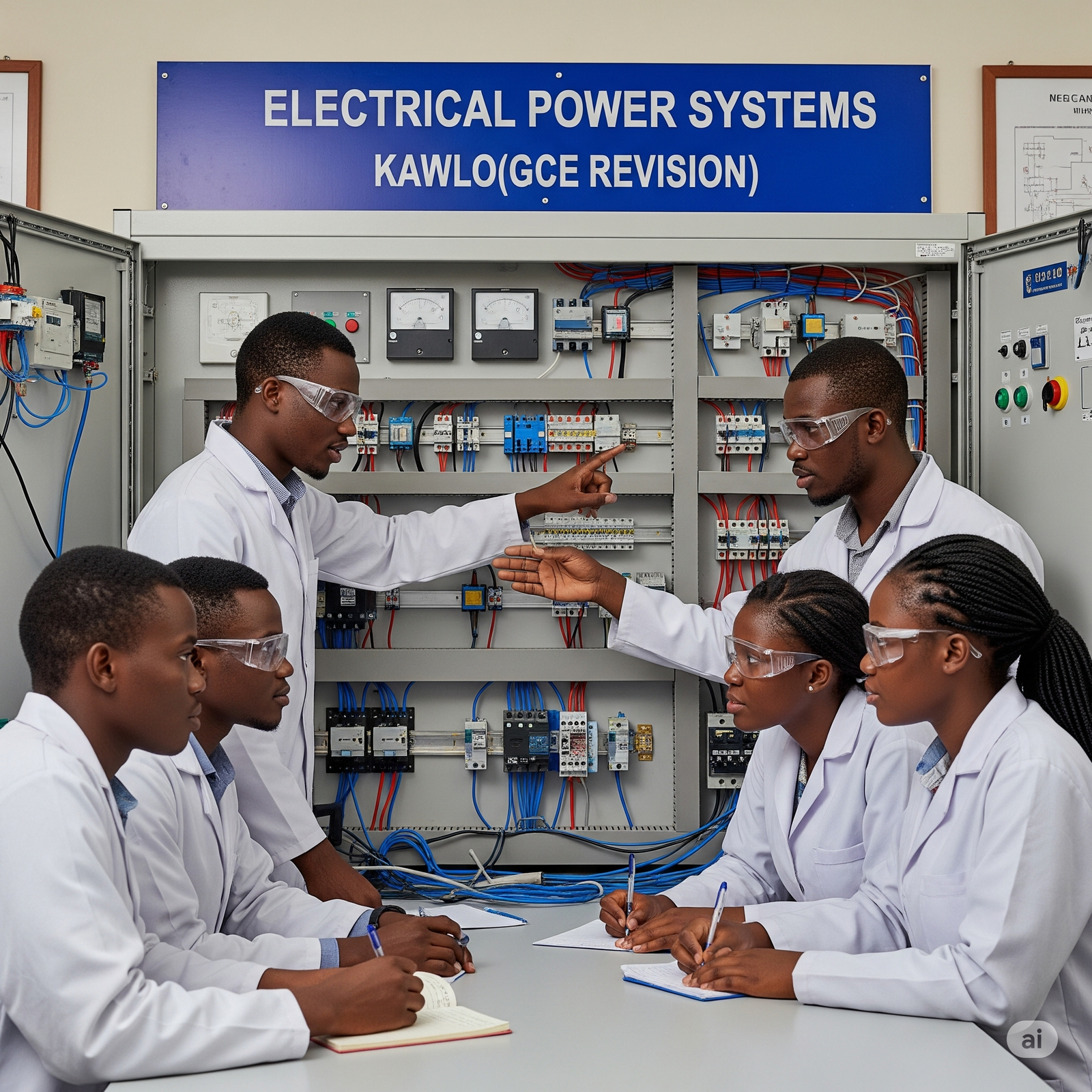cameroon gce advanced level 2025 engineering science 2
cameroon gce advanced level 2025 engineering science 2
SECTION A
Question 1:
- A cell with an electromotive force (e.m.f) of 1.5 V and internal resistance is connected in series with a cell of e.m.f 2.0 V and internal resistance r.
- A resistor with a constant resistance of is connected across the ends.
- A current of 0.25 A is produced.
- Task: Determine the value of r.
Question 2:
- Compare images formed by a converging lens and a diverging lens, both with a focal length of 20 cm.
- The object is placed 22 cm from the lens in each case.
Question 3:
- A homologous series of an organic compound is represented by the general formula .
- Task: Write down the formula of the third member of this series and draw diagrams showing the structural formulae of the isomers.
Question 4:
- The energy released by the Sun is the result of a thermonuclear fusion in its core, where protons are fused together into helium nuclei through a complicated process.
- The overall reaction is represented by the following equation:
411H→24He+other particles + energy
- The mass of the “other particles” is negligible.
- Data:
- mass of proton =
- mass of helium nucleus =
- Task (a): Explain why the process of forming helium nuclei from protons is difficult to achieve on Earth.
- Task (b): Calculate the energy released by the sun for every kilogram of protons fused to form helium nuclei.
Question 5:
- Task: Distinguish between empirical formula and molecular formula.
Question 6:
- Task: List the factors that affect the magnitude of the torque for current flowing through a conducting loop.
Question 7:
- Figure 1 shows an incompressible fluid with a density of flowing through a horizontal pipe.
- The area of the pipe increases from at point D to at point H.
- The velocity at point D is .
- Task (a): Write down the continuity equation given that the velocities at D and H are and while the cross-sectional areas are and respectively.
- Task (b): Calculate the pressure difference between the points D and H.















Che
November 18, 2025
Pls I want to join